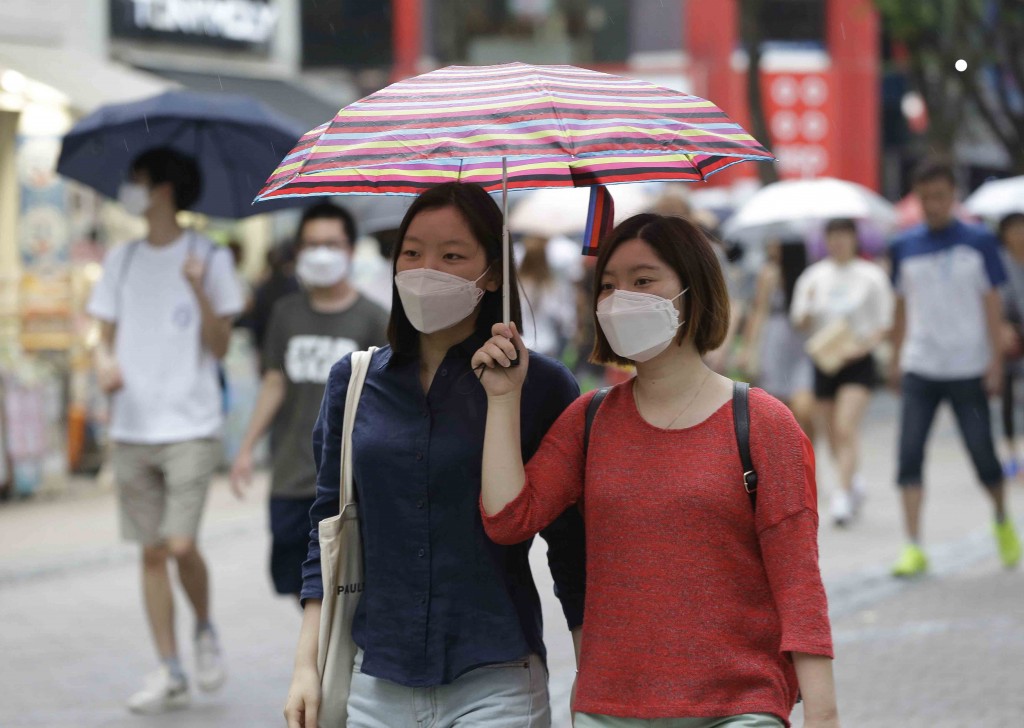- California Assembly OKs highest minimum wage in nation
- S. Korea unveils first graphic cigarette warnings
- US joins with South Korea, Japan in bid to deter North Korea
- LPGA golfer Chun In-gee finally back in action
- S. Korea won’t be top seed in final World Cup qualification round
- US men’s soccer misses 2nd straight Olympics
- US back on track in qualifying with 4-0 win over Guatemala
- High-intensity workout injuries spawn cottage industry
- CDC expands range of Zika mosquitoes into parts of Northeast
- Who knew? ‘The Walking Dead’ is helping families connect
How MERS is changing daily life in S. Korea

Women wear masks as a precaution against the Middle East Respiratory Syndrome virus as they walk on the Myeongdong, one of the main shopping districts, one of the main shopping districts in Seoul, South Korea Wednesday, June 17, 2015. The death toll continued to mount in South Korea’s MERS outbreak on Tuesday even as schools reopen and people recover from the virus. (AP Photo/Ahn Young-joon)
By Kim Bo-eun
People are shunning hospitals, cutting public transport use and buying products to protect themselves from Middle East Respiratory Syndrome (MERS).
Sales of medicines at convenience stores have soared as people avoid hospitals.
According to 7-Eleven, sales of cold medicines and fever reducers have risen 16 percent from June 1 to June 15 from a year earlier.
Sales in the same period increased 12 percent at convenience store chain CU.
People are also taking fewer trips on public transport because of the virus.
Subway and bus patronage in Seoul on June 14 totaled 5,698,000 passengers, down 21.9 percent from May 31. The decline was not notable during rush hour.
Passenger numbers on the KTX bullet train’s Seoul-Busan line fell 25.8 percent from June 1 to June 14 compared with the same period last year.
To keep viruses away, people are also buying air purifiers.
Sales of the product at Emart from June 1 to June 15 surged 104.9 percent compared with the same period a year earlier. Sales at Lotte Department Store jumped 42.5 percent.
The first MERS case was confirmed on May 20 and the first death occurred on June 1. The death toll is 20, with 162 confirmed cases and 6,508 people quarantined as of June 17.















